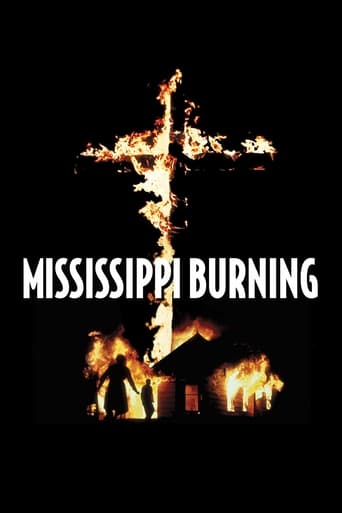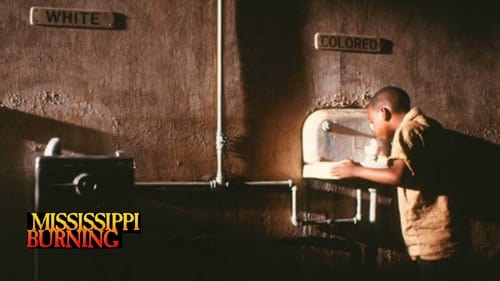



You won't be disappointed!
Overrated
Most undeservingly overhyped movie of all time??
Good story, Not enough for a whole film
Strong character and a brilliant plot this film is brilliant. An all star cast deliver their performances perfectly with the villains being easy to hate and the protagonist being great to follow. Highly recommend
View MorePowerful, powerful movie. I' sure everyone involved in it is justifiably proud of it.
View MoreWhen you're born in the 1990s in a country far off from the American South, it is hard to envisage how people could actually behave so hatefully because of skin pigment. This film, puts much into perspective and truly is an eye-opener that allows those of us who are detached from the film's setting a glimpse into what life was like at the time.From the very first scene it's tense and keeps you intrigued towards the outcome.As casting goes it's perfect, everyone depicts their roles well and adds to the whole theme both historically and emotionally. It also has a number of scenes that will make your blood boil and your skin crawl, but for me that's all part of the necessary roller-coaster of emotions that one would experience in order to appreciate this film and it's messageThis film may prove upsetting for some, but I would advise you to have a go. There have been many movies grounded around similar themes, and whilst most have been plausible I feel that this one is the pinnacle. Some people will probably be put off it because it's starting to age, but if you have decent taste you'll know yourself that this isn't an issue. Must watch!
View MoreThe main question looming over the head of Alan Parker's Mississippi Burning is whether or not the film has a moral responsibility to tell its true-life tale of racial hatred and murder in Civil Rights Act- era Mississippi exactly how it happened, or if artistic license grants the creators of the film the right to tell an entertaining story that maintains a powerful message of social injustice and equal rights. I am of the opinion that any film can change events for the sake of a digestible narrative, as long as the facts aren't muddied for the sake of fitting a films own agenda. Like countless old World War II movies that softened the horrors of war or fabricated tales of heroism, a film isn't required to be a moving Wikipedia page as long as its heart is in the right place.Mississippi Burning opens with the brutal slaying of three Civil Rights activists - two white men and one black - by members of the Ku Klux Klan, in an event that would capture the attention of the entire nation back in 1964. Two federal agents are sent in to investigate, Agent Rupert Anderson (Gene Hackman), a former Mississippi sheriff well accustomed to the attitudes of the small- town police forces in the state, and determined liberal Alan Ward (Willem Dafoe). Upon arrival, it doesn't take long for the agents to suspect widespread corruption within the police ranks and a possible cover-up. Anderson takes a hands-on approach of mingling with the locals and delivering thinly-veiled threats, while Ward respects rules and rank, bringing in over a hundred new agents to tackle the ever-increasing conspiracy.The idea to tell this story, which is one of the key events that led to the signing of the Civil Rights Act, through the eyes of two white men would be instantly scoffed at nowadays throughout social media, and perhaps rightly so. It is most importantly a story of the suffering of African-Americans, and of their bravery and spirit in taking a stand against it. Yet while Mississippi Burning takes a procedural, buddy- cop movie approach, it highlights how ultimately powerless the agents investigating the case are. Anyone familiar with the story will know that the men responsible for the murders were eventually brought to justice, but this is only one case in a country brimming with racial tension as social integration is introduced. It would take people such as the activists murdered in the film and the many Civil Rights demonstrations carried out in defiance that would ultimately lead to changes.At its best, the film is successful in making you feel extremely angry. As various African-Americans are lynched or attacked leaving a church by gangs carrying weapons, you, along with the bemused Agent Ward, question how such hate for another race can manifest itself within such a large portion of a community. With the FBI becoming increasingly frustrated at the lack of co-operation from the residents of the town, the film somewhat indulgently gives us a scene of Anderson having an off-the-record word with suspected Klan members, particularly Deputy Pell (Brad Dourif) and hot-head redneck Frank (Michael Rooker). It's a punch-the-air moment of badassery, and one of many such scenes that allow the film to be entertaining as well as thought-provoking. It's far from perfect of course, with a shoe-horned romance between Anderson and Pell's suffering wife (Frances McDormand) in particular feeling wholly unnecessary, but this is a powerful and beautifully-made piece featuring one of Hackman's best performances.
View More